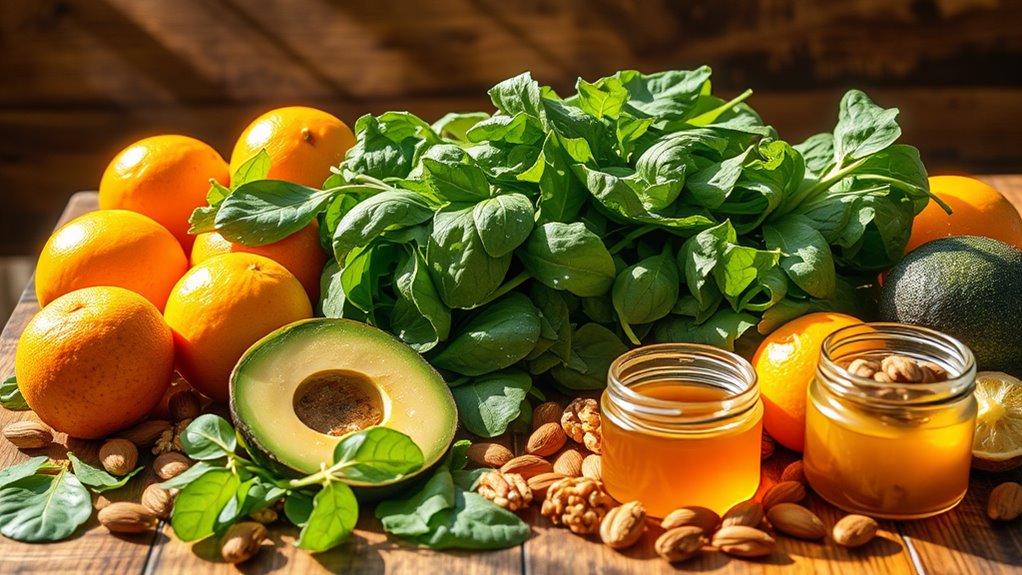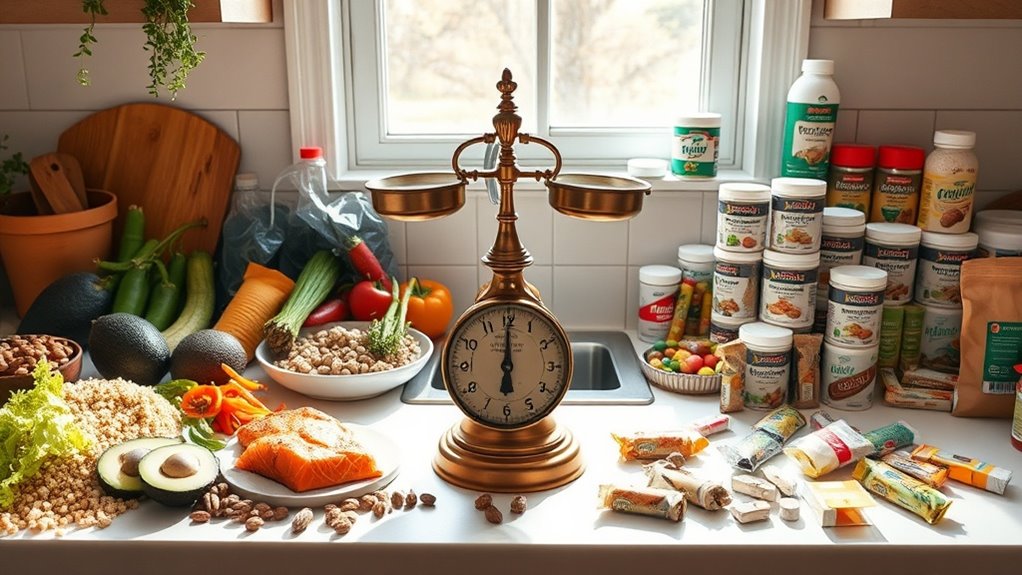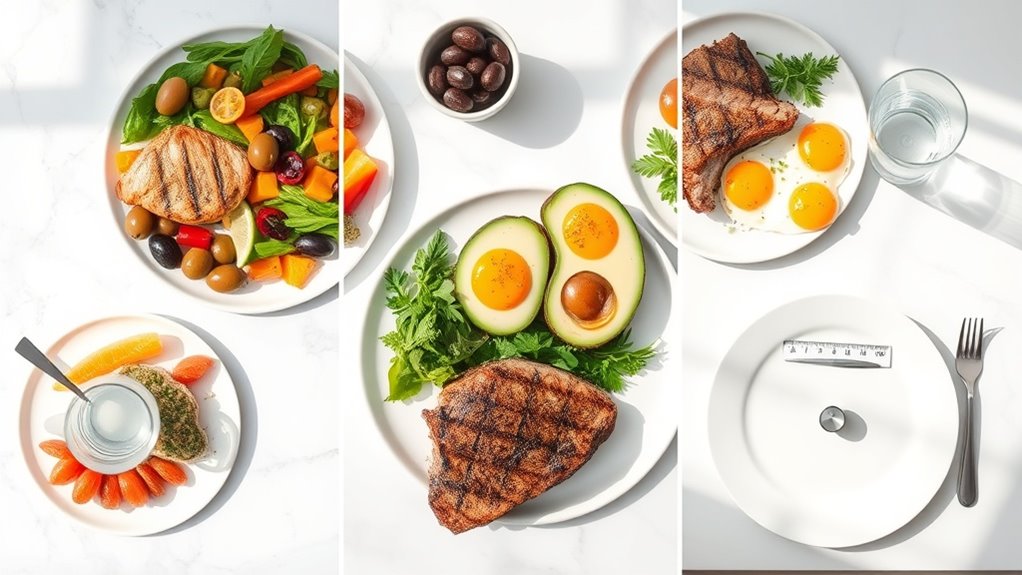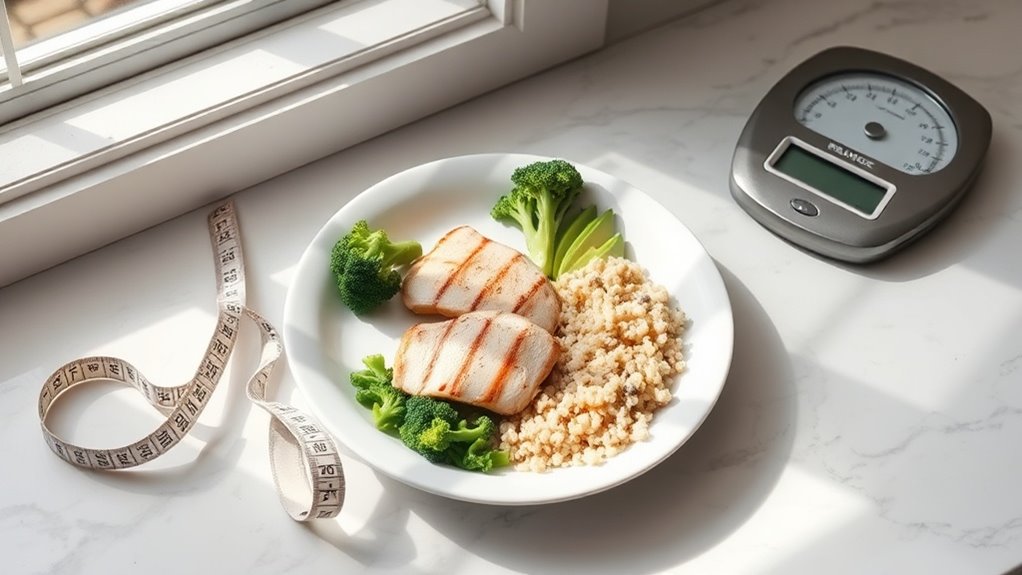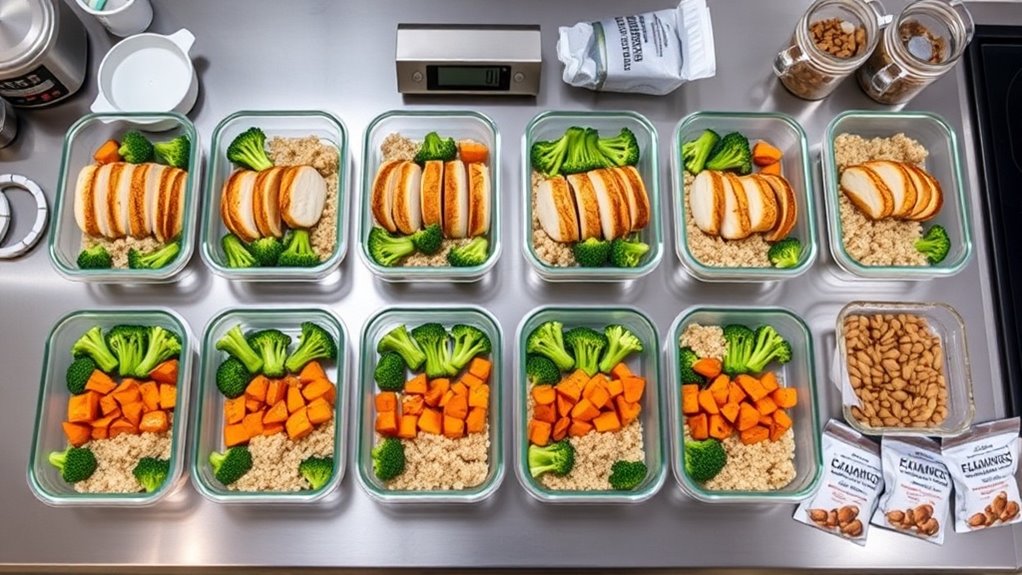Is Your Diet Making You Tired. The Energy-Boosting Foods You Need!
Are you feeling more tired than usual? It might be time to take a closer look at your diet. The foods you eat can either fuel your body or leave you dragging by midday. You might be surprised at how some simple changes—like swapping sugary snacks for whole grains and fruits—can boost your energy levels. But it’s not just about what you eat; hydration and meal timing play vital roles too. Curious about how to make these changes?
Understanding the Link Between Diet and Energy Levels
When you think about your energy levels, it’s easy to overlook how much your diet plays a role. You might grab a sugary snack for a quick boost, but that crash afterward can leave you feeling even more drained.
Instead, focus on whole foods like fruits, veggies, and whole grains, which provide steady energy without the rollercoaster effects. Protein is key too; it keeps you feeling satisfied longer, helping to stabilize your energy levels throughout the day.
Hydration matters as well—sometimes, fatigue isn’t just about what you eat, but also about how much water you’re drinking.
Common Dietary Mistakes That Contribute to Fatigue
You mightn’t realize it, but certain dietary habits can sneakily sap your energy, leaving you feeling more tired than ever.
For instance, skipping breakfast might seem like a good idea, but it can lead to afternoon energy crashes. Eating too many sugary snacks might give you a quick boost, but it’s followed by a serious slump.
Also, not drinking enough water can leave you feeling sluggish—hydration is key!
Then there’s the issue of relying too much on caffeine; while it perks you up temporarily, it can disrupt your sleep later.
Lastly, not getting enough nutrients, especially from fruits and veggies, might leave you feeling drained.
Recognizing these mistakes is the first step toward feeling more energized!
Energy-Boosting Foods to Incorporate Into Your Diet
Incorporating energy-boosting foods into your diet can make a world of difference in how you feel throughout the day.
Start with whole grains like oatmeal and quinoa; they provide lasting energy without the crash.
Don’t forget about fruits like bananas and berries, which are packed with vitamins and natural sugars.
Nuts and seeds are fantastic snack options, offering healthy fats and protein to keep you going.
You might also want to add leafy greens and lean proteins, like chicken or tofu, for their nutrient density.
And if you’re looking for a little extra zing, try dark chocolate—yes, you can indulge a bit!
The Role of Hydration in Maintaining Energy
Staying hydrated is crucial for keeping your energy levels up, especially when you’re juggling a busy schedule.
Think about it: your body relies on water to fuel every function, from digestion to concentration. If you’re feeling sluggish, it might just be a sign that you need a drink!
Aim for at least eight cups a day, and don’t forget that fruits and veggies can help, too. Sometimes, even mild dehydration can drag you down more than you realize.
So, keep a water bottle handy—sip it throughout the day, and you’ll notice a boost in your mood and energy.
The Impact of Meal Timing on Your Energy Levels
While it might seem like the food you eat matters most, when you eat can significantly influence your energy levels throughout the day. For example, eating at regular times helps your body know when to expect fuel. If you skip meals or eat too late, you might feel sluggish. Check out this table to see how meal timing can affect your energy:
| Meal Timing | Energy Impact |
|---|---|
| Early Breakfast | Kickstarts metabolism |
| Mid-Morning Snack | Boosts concentration |
| Lunch | Sustains afternoon focus |
| Afternoon Snack | Prevents energy dips |
| Late Dinner | Can disrupt sleep and energy |
Creating a Balanced Meal Plan for Optimal Energy
Creating a balanced meal plan for optimal energy can feel like a daunting task, especially when life gets busy and fast food seems like the easiest option.
But don’t worry! Start by focusing on whole foods like fruits, veggies, lean proteins, and whole grains. These foods fuel your body and keep your energy steady throughout the day.
Try to fill half your plate with colorful veggies, add a serving of protein, and complete it with a healthy carb.
Don’t forget snacks! Nuts, yogurt, or fruit can be quick energy boosters.
Planning meals ahead can help you avoid those tempting drive-thrus. Remember, it’s all about balance—not perfection.
You’ve got this, and your energy levels will thank you!

